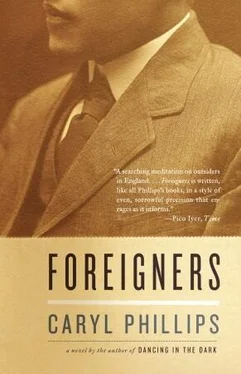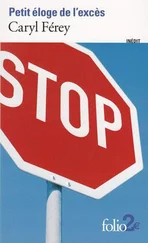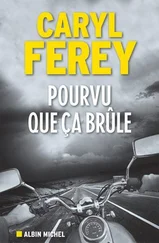I never saw David standing alone by himself either in the pub or at a dance. Aside from his living arrangements, which meant that he lived a little way off from all the others, he appeared to me to be fully integrated into the African group. In fact, sometimes the university held dances and I saw him there, and again I noticed his skill at dancing. This would have been around 1951. He was very bouncy, and very young and slim. David wasn't really a political type and he never joined in with any of that. I tried to talk to him about the racial situation, especially as I had just formed the Chapeltown Commonwealth Citizens Committee. This was a difficult time for a white woman to be seen with a group of coloured men. I would be at risk, but the greater risk would be to them. People would often say things to me — nasty things — and naturally the men would want to defend me, although I'd try to encourage them to say nothing. But it wasn't easy. The Labour Party wouldn't officially support us in our work with the coloured immigrants; some individuals within the Labour Party, yes, but not the Labour Party as a whole. We — the members of the Chapeltown Commonwealth Citizens Committee — leafleted places and tried to make them take down their discriminating signs. We postered offices and pubs, and we also went to estate agents and tried to convince them that property prices actually went up when coloureds moved in. We told them that initially some whites might want to move out, but we reminded them that the housing demand from coloureds was such that the prices would inevitably rise back up. We also tried hard to get coloureds registered to vote, and we were forever dealing with the nuisance of the police. David was interested in what we were doing, but he didn't take part. He would always ask how we thought we were going to change things, and I would try to convince him that it was worth collecting evidence of systematic racism and challenge it head-on. However, David preferred to talk about what he was doing then, which was working in engineering across at a foundry in Hunslet.
*
It was called West Yorkshire Foundries, not because of the county of West Yorkshire (which actually didn't exist back then), but because the owner was a certain Mr Wallace West. The company began in the Second World War making castings for aircraft, then it eventually got involved in car manufacture. I was the personnel officer and I remember David as a short man who smiled all the time even though he didn't seem to have much to smile about. People in the factory used to call him 'Alliwalli' and he was known for reading educated newspapers. He spoke with a thick West African accent, I remember that, and it was sometimes difficult to understand what he was on about. But I was the one who led him from his formal interview to his department in the foundry itself. We put him in Department 87, which was then run by Percy Chainey, whose employees were required to help out with any department that had a labour shortfall. If no shortfall existed, Department 87 members were expected to sweep and clean the factory in general. Oluwale would have been among the first of hundreds of immigrant workers who eventually passed through the foundry's doors. They used to queue outside the interview room, three or four deep, and the line would often stretch right down the street. We attracted immigrants because the pay was competitive, but the conditions were terrible and safety was non-existent. We always had Lithuanians, Hungarians, and Poles, then Asians and West Indians, but Oluwale was the only West African I remember. In fact, in those days we had multilingual signs in the factory, but I'm not sure it helped anybody. The day used to begin at 7:30 a.m. In fact, the hooter sounded three minutes before work was to start, and that's when the men would assemble in the streets and begin to clock in. They had an hour for lunch and worked right through until 5:30 p.m., but it wasn't easy. In fact, to many it was worse than being down the pit. Mr West liked his employees to wear 'whites', like he'd seen workers wear in India. Well, they might look nice, but they were useless as protective gear. And there were no safety shoes or anything. In the aluminium and iron foundries you'd walk in and it would be completely black except for the light of the molten metal, a white light which was dazzling. Things were pretty bad back then, and even the area around the factory was rough with no grass in sight. The river was black, like oil. You sometimes see fish in it now, but back then the only living things in it were leeches. No, it wasn't a great job with all the heat and the sheer physical graft involved. But when overtime was available hours could easy double from the forty-four-hour basic.
And so there you were, David, working in the white-hot heat of the foundry, without protective clothing, vulnerable to spills and accident, hard grown men's work that only the strong and the skilled could survive and then, at the end of the day, out again, away from the filthy black river, out on to the windswept streets lined with redbrick factories. 'Hey you, nigger boy. Did you come out of your mam's arse?' A slow journey back in the direction of Belle Vue Road and a room called 'home', and the next morning back to work where the company doctor gave you your lightning-fast check-up. After he tapped your chest and looked quickly into your mouth, he had a suggestion. 'Cheer up, sunshine. Perhaps you should try going to the cinema. That'll make you feel better. Everybody's the same colour in there.'
I arrived in England from Nigeria as a stowaway in January 1951. Takoradi to Middlesbrough. There was one foot of snow on the ground and all I had were tennis shoes and dungarees, that's all. And a shirt with Sugar Ray Robinson drawn on the back of it. It was winter and I was freezing. I'd never been so cold, and to me it was like living in a freezer. But eventually I made my way to Yorkshire and that's where I met David. The way I see it, Yorkshire people are friendly, hard-working men. Socialists. You get the occasional problem here and there but they're generally okay. There were not many of us coloureds in those days. It was like you could basically count the number of blacks in Britain on one hand back in 1951. The only West Indians we really knew were a few ex-RAF guys with half-caste children, but there were no West Indian or African women there. We didn't mix much with the West Indians to start with; that came later. Eventually I got a job working at William Graves Foundry. We made shipping equipment. Then, around about this time, I met David. David was short and stocky-like. He looked like a jockey. He wasn't really a drinker or smoker, but he loved to dance. However, he was mostly by himself. Always alone. I never went to David's flat because I never knew where he was living. He'd say, 'Goodnight, I'll see you tomorrow', and then he'd be gone. He never invited anybody to his place, but you didn't ask him about it because you knew it would be an argument. The problem with David was he didn't understand the colour-bar situation and he would get very wound up. 'I'm from a British colony and I'm British,' he would say. 'So why do they call me "nigger"?' This was the attitude David couldn't deal with. He wasn't able to think around a situation and do something else. He was always in trouble and in conflict with the police. He wasn't crazy, he just didn't understand the system, that's all. He was a good guy. He'd never fight anybody, never draw a knife, but verbally he could be very abusive, especially against the police. He was always telling them to 'fuck off '. The only time David would cool down was when he was with his mates. On his own he couldn't handle these situations. David needed somebody to sit down and tell him what was happening to him. Some of us nearly went mad in England because the environment was new. We spoke the same language and we thought everything would be okay, but we soon found out. David really was a smart cat who could always think fast if he had to, but he was a loner who wanted to do everything by himself. The guys tried to help him, because we knew the situation, which is why we always walked out in twos or threes or fours. On your own you had to be very careful. However, David was never a troublemaker. He could be very foul-mouthed, but he wasn't a troublemaker. We knew that the police were against us because we could see it, and we had to work around them. But not David. He was determined. He never discussed his ambitions or any idea of going back to Nigeria. But then again, the majority of us didn't want to go back to Africa again.
Читать дальше











![Unknown - [Carly Phillips] The Bachelor (The Chandler Brothe(Bookos.org) (1)](/books/174132/unknown-carly-phillips-the-bachelor-the-chandle-thumb.webp)
